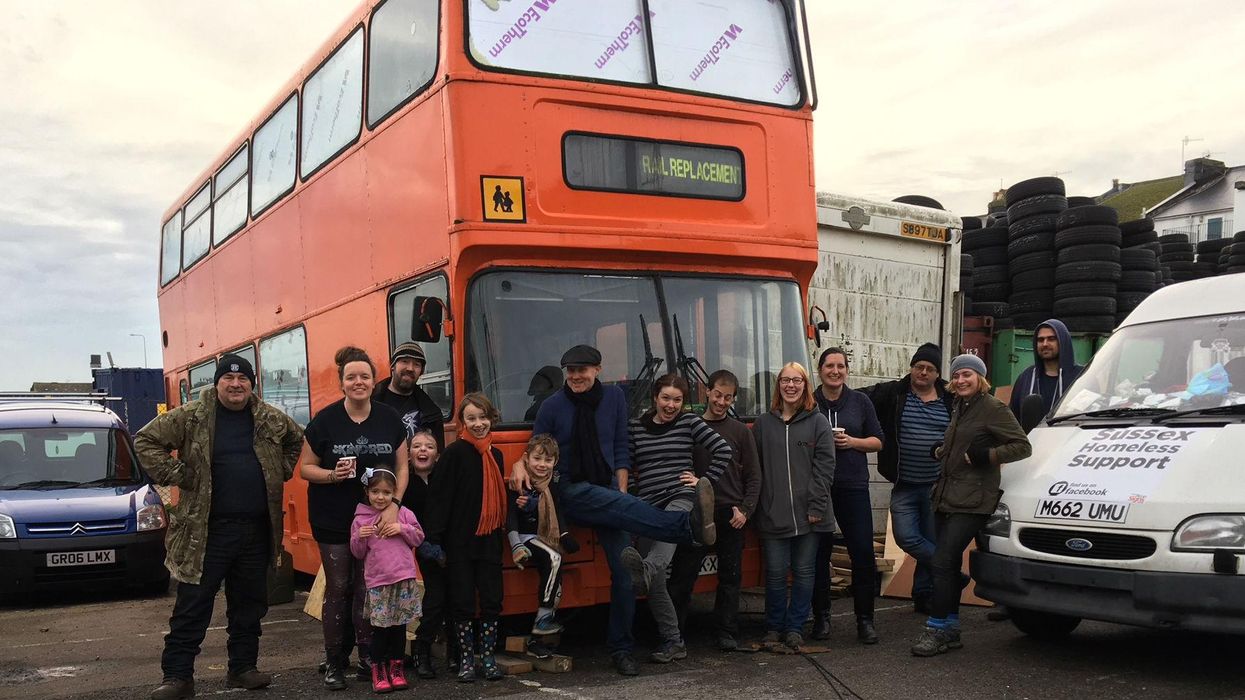News
Jake Hall
May 17, 2018
The months leading up to the royal wedding have been shrouded with frenzied excitement, but also with controversy.
Earlier this year, Windsor councillor Simon Dudley sent a letter to Thames Valley Police requesting that they deal with “aggressive begging and intimidation”, as well as “bags and detritus” which would accumulate on the streets during the weekend of the royal wedding. He also claimed that homeless people would paint Windsor in a “sadly unfavourable light".
His official reasoning was a concern that rough sleepers would have their belongings stolen by tourists, yet his letter also seems to criticise homeless people while indicating that they sleep on the streets out of choice, stating that they have made a “commercial choice preying on residents and tourists".
Dudley’s plea has seemingly worked; already this week, reports have shown that rough sleepers are having their sleeping bags removed from the streets. Local police officers claim that their possessions are being given up voluntarily, although video footage obtained by Mail Online suggests otherwise.
In response, a number of events such as the ‘Royal Sleepover’ were planned, whereas local charities pooled their resources in order to travel to Windsor for the royal wedding and provide refuge for the homeless people targeted by the crackdown. One of these charities was Sussex Homeless Support, a Brighton-based initiative which recently announced plans to travel up on its bus-cum-night shelter the day before the nuptials in order to provide shelter, hot drinks and more general support for rough sleepers.
Speaking to indy100, founder Jim Deans explained:
After we saw the councillor saying he wants to clean the streets and scare the pigeons away, charities in various cities all had meetings and decided to go up there not only to campaign, but also to offer support.
Opposed to the idea that the aim is to stage a disruptive political protest, Deans instead praises police officers for their willingness to co-operate.
We’re not disruptive. We’ve managed to work with the police and other authorities, it works better for us.
“What we’ve suggested to Windsor Police is that we bring a bus along and act in a supportive role; so we have water, capability to make teas and coffees, and police officers can signpost to us.” He again describes trust as integral: “The police have obviously looked us up and know what we do, and they understand that we probably have more resources than them – and less restrictions.”
“But the council is now involved with the bus, which means that everything will be slowed down and they’ll drag their heels. Still, we are leaving from Brighton to travel to the wedding on Friday 18 May.”
According to Deans, the council-led controversy surrounding the wedding is both a distraction from what should be a celebratory moment for Windsor – “can you imagine how much money they’re going to make? They should just be sitting back and rubbing their hands together!” – and, he claims, a news story which has seen the royal family unfairly criticised.
I don’t think that homelessness in this country has anything to do with the royal family, and certainly not Harry. His mother was a big campaigner, and I think he seems to be following her lead.
I think he just wants to be a nice guy really, so it would be terribly unfair to blame him or try to disrupt his wedding in any way whatsoever.
Instead of critique, Deans believes in practical, pragmatic solutions.
In fact, the aforementioned bus was purchased and then renovated after plans to create a winter shelter in Brighton were delayed by the local council. “It just dragged on, and they refused to give us buildings even after every councillor in Brighton & Hove voted to give us one and let us run a night shelter, because we’re experienced in it.”
So we threw the bus together in six weeks; one day it was a double-decker bus, the next day there were no seats in it, the following day we were building wooden beds.
He proudly states that there have been little to no complaints of disruption so far and attributes this success to the charity's local reputation. Also noteworthy is the fact that Deans himself has experienced homelessness in the past, as have many of his volunteers.
Alongside the bus, SHS works closely with the Real Junk Food Project to collect discarded food and donations from supermarket shoppers:
We all work together, and once your profile has been raised and people can see that what they donate is being genuinely given to those in need, it becomes easier. Every week I'm collecting £3,000, £4,000 worth of tinned food that local shoppers are donating to us.
The charity also hosts street food events, creates food banks, and drops off parcels filled with bedding, clean underwear and non-perishable food to emergency shelters, which he explains are often “very, very basic – I’ve been to places where you get a bed and a lightbulb, and that really is it. Your entertainment is switching the light on and off.”
Although billed as a solution, Deans highlights a need to look at figures in order to measure their efficacy:
If you look at statistics, there are more people dying in emergency accommodation than there are dying on the street, whereas we’ve also had meetings with NHS nurses who have told us bluntly that they’ve got 20 clients who are malnourished.
A third of our food goes in the bin; how can we be dealing with malnourishment? It just doesn't make sense.
He criticised Brighton's local government for failing to adequately respond to the crisis; in particular, he cites a plan obtained through a freedom of information request which explains that, in order to accommodate natural population growth, 30,000 new homes must be built by 2030. “The city plans to build 13,000, maximum. You don't need to be Einstein to work out how this will turn out!"
These are problems which, he says, need to be addressed, as they have more severe consequences:
Brighton has got the second worst record in the country for homelessness, but I can assure you it's got the worst record in Europe for mental health.
It's off the scale, and that cannot possibly be accidental.
Politicians may claim that public spending on mental health is at a record high, but this is essentially a lie - mental health trusts have less money to spend than they did five years ago, whereas services have been accused of failing on numerous occasions.
Deans attributes these claims to the idea that “these policies seem to be created by the mega-rich; they're quite happy to accept the fact that people are homeless because they don't see them, or engage with them. They don't know them."
He says that this has created a disconnect and fuelled public reluctance to trust politicians:
The public are sick to death of politicians and local councillors trying to fill their heads with nonsense, because they can see the homelessness problem by just looking at the streets.
“To their credit, the public are actually trying to combat the problem,” he states, praising the hard work of volunteers. "We're planning to do self-builds; there are these self-contained, pre-fabricated units that can be imported, so we can build these little pods in units of four, six or eight.”
In order to execute plans like these, the charity is in need of professional help and ongoing donations. It's an admirably self-driven effort – in fact, it was only last year that SHS was officially granted charity status. “We ran without it for four years,” recalls Dean.
People know we’re genuine, because they come into my office where I’ve got bank statements lying around. So nobody that works with us is under any illusion whatsoever that this is about making money – in fact, it’s the opposite.
Organisations like this are still necessary, as the rhetoric written throughout councillor Dudley’s plea to clear Windsor’s streets of beggars is that they’re an eyesore, or a nuisance. According to Deans, police officers are left ill-equipped to genuinely help rough sleepers and often unsure of how best to deal with the situation – “they can’t just move them on, so they’ll often bring them to me,” he explains, reiterating his claim that the rich are all too willing to ignore the plights of the poor.
As for the royal wedding? Deans advises people to just go, enjoy the ceremony and either leave rough sleepers alone or actually help them out:
Windsor is going to earn billions that weekend, so the fact that they have to spend a few quid on some homeless people, or to suffer them, is no big deal.
Councillors should really just be sitting back with nothing but huge smiles on their faces.
Click here to visit Sussex Homeless Support's GoFundMe page to find out how you can help.
More: If Prince William does this one thing at Harry's wedding he will break royal protocol
Top 100
The Conversation (0)














